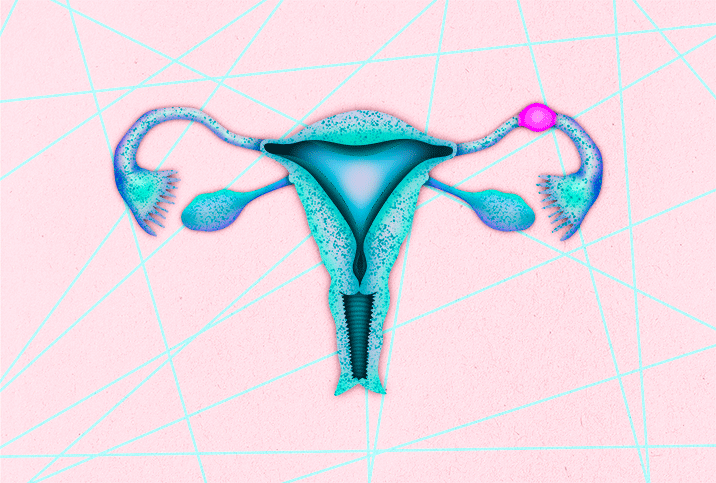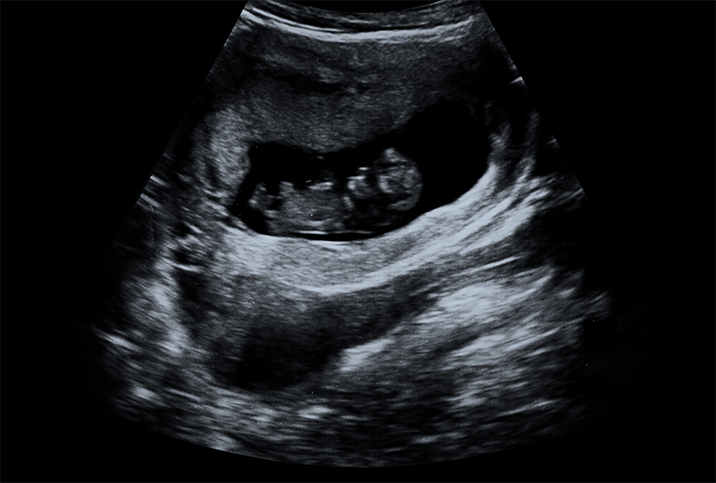Recognize the Signs of Miscarriage

Research indicates that up to 25 percent of pregnancies will end in miscarriage. A miscarriage refers to spontaneous pregnancy loss before 20 weeks gestation. Although most miscarriages occur in the first trimester (before the 12th week of pregnancy), 1 percent to 5 percent of pregnancies will end in miscarriage during the second trimester.
Anyone who is pregnant is at risk of experiencing this type of pregnancy loss. Below, you'll find information on what symptoms to look out for if you believe you might be experiencing a miscarriage, as well as what to do in response.
Signs and symptoms
The symptoms of miscarriage include vaginal bleeding, the passage of tissue and pain in the abdomen, pelvic region, and back, explained Kecia Gaither, M.D., MPH, FACOG, double board-certified in OB-GYN and Maternal-Fetal Medicine and director of Perinatal Services at NYC Health + Hospitals/Lincoln.
"Sometimes, a patient may even have a heavy menstrual period. In this case, the individual might not even be aware that they were pregnant and are now having a miscarriage," Gaither said.
But it's important to keep in mind that as no two people (or pregnancies) are alike, and not everyone will experience the same symptoms. Some people might experience heavy cramping while others will experience light cramping. The entire process can vary in time and pass quickly or take place over the course of several hours.
According to the American Pregnancy Association, other symptoms may include:
- Weight loss
- Contractions
- White-pink mucus coming from the vagina
- A sudden decrease in signs of pregnancy, such as tender, swollen breasts, nausea and increased urination
What to do if you think you're having a miscarriage
The first thing you should do if you think you may be having a miscarriage is to seek the help of a medical provider. Unfortunately, once a miscarriage begins, it cannot be reversed.
Your healthcare provider may do several tests to determine if you are having a miscarriage:
- Pelvic exam: Your doctor will check to see if your cervix has begun to dilate.
- Ultrasound: In some instances, a diagnosis isn't achieved, in which case you might need a follow-up ultrasound about a week later.
- Blood tests: Your doctor may check your hCG levels (the pregnancy hormone) and compare it to previous measurements.
- Tissue tests: This is why it's important to place any tissue you may have passed into a clean container. Then your doctor can examine it and rule out any other causes for your symptoms.
- Chromosomal tests: This will often be done in response to repeat miscarriages, or two or more previous miscarriages.
Daniel Roshan, M.D., a New York City-based high-risk Maternal-Fetal OB-GYN, explained that if you've had two or more miscarriages back-to-back, you should be seen by a specialist to undergo a careful evaluation. In this evaluation, you will likely undergo blood tests looking for things such as antiphospholipid antibodies (often found in patients with lupus), which may lead to recurrent losses.
Who is most at risk?
One significant risk factor is maternal age. "The older the individual, the more risk for abnormal chromosomes and potential miscarriage," Roshan said.
But age is only one factor, Roshan added. Miscarriage can also happen in patients with other medical problems, preexisting conditions or environmental factors, including:
- Systemic (autoimmune) diseases, such as lupus
- Exposure to teratogens or medications associated with congenital disabilities
- History of recurrent pregnancy loss
- Exposure to viral disease or bacterial infections during pregnancy
- Fetuses with chromosomal anomalies or structural anomalies
- Diabetes
- Hypertension
- Alcohol or drug abuse
- Uterine and cervical anomalies
- Thyroid disease
- Hormonal abnormalities
There's no denying a miscarriage is a traumatic and difficult event for anyone to go through. You may be encouraged to know, however, that miscarriage is usually a one-time experience. Most women who miscarry go on to carry healthy pregnancies to term. Fewer than 5 percent of women miscarry two consecutive times, according to Mayo Clinic.
Reducing the risk of miscarriage
In many cases, miscarriage is not preventable and the reason for the pregnancy loss is unknown. However, there are ways to decrease your risk of miscarriage, including not smoking or drinking alcohol during pregnancy, and eating a healthy, balanced diet.
Recent research indicates the use of baby aspirin before pregnancy might successfully reduce the risk of miscarriage. The results of a 2021 study of more than 1,200 women published in the Annals of Internal Medicine showed that "preconception use of Low Dose Aspirin (LDA) at least four days per week may improve reproductive outcomes for women who have had 1 or 2 pregnancy losses. Increasing adherence to daily LDA seems to be key to improving effectiveness."
Additionally, Roshan shared that folic acid, prenatal vitamins and post-conception treatments, such as progesterone, prednisone, and blood thinners, such as Lovenox or IV immunoglobulin, have been used to some success.
As Roshan stressed, any medications or supplements should be used for proper indication and under the supervision of an OB-GYN. Early prenatal visits and careful follow-up for patients with recurrent pregnancy losses are also essential.


















